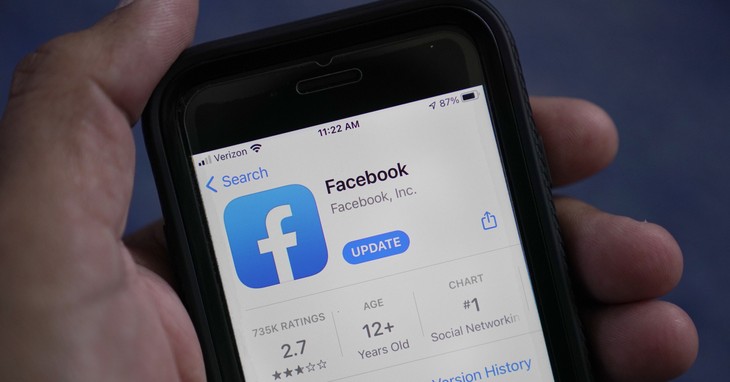Mark Zuckerberg’s social media giant Meta Platforms, Inc., formerly known as Facebook, issued guidelines in 2019 barring employees from discussing abortion on their internal communication platform, Workplace.
The guidelines fall under Meta’s “Respectful Communication Policy,” which bars employees from posting “opinions or debates about abortion being right or wrong, availability or rights of abortion, and political, religious, and humanitarian views on the topic,” The Verge reported.
Women’s rights are not, it turns out, human rights and are unsuitable to be discussed in the workplace. https://t.co/gHHfZtti8z
— séra jamais (@ibaiki) May 20, 2022
According to The Verge‘s review of the policy, Meta feared “an increased risk” that the company could be seen as a “hostile work environment.” In other words, they’re trying to avoid lawsuits occurring when employees start throwing things at each other over their abortion stances.
The weird thing about this policy is that it does not restrict speech on Workplace regarding myriad other hot-button issues like immigration, trans rights, or BLM. It appears you could even talk about Donald Trump if you wanted to! I’m guessing you’d better say bad things about him though, or you’ll probably be looking for work soon.
The discussion has heated up recently since the Supreme Court’s apparent decision to overturn Roe v Wade was leaked.
Abortion discussions are just that toxic, according to Meta executives. The Verge reported that Meta’s VP of HR Janelle Gale said at an all-hands meeting Thursday that abortion was the most divisive and reported topic:
READ RELATED: Uvalde mom: The feds cuffed me when I begged cops to go in and confront the shooter
She said that “even if people are respectful, and they’re attempting to be respectful about their view on abortion, it can still leave people feeling like they’re being targeted based on their gender or religion,” according to a recording of her comments obtained by The Verge. “It’s the one unique topic that kind of trips that line on a protected class pretty much in every instance.”
Newsbusters reports that Meta Head of Product Naomi Gleit wrote “employees were only allowed to discuss abortion at work ‘with a trusted colleague in a private setting (e.g. live, chat, etc.)’ and in a ‘listening session with a small group of up to 5 like-minded people to show solidarity.’”
The funniest snippet in The Verge’s piece is this little nugget: During the aforementioned all-hands meeting, employees posted several times about the communication policy underneath the live stream, but the posts were removed as the meeting continued. An example of the censors censoring themselves! Priceless.

The Verge also writes that a 10-year employee wrote that the policy had led her to feel a “strong sense of silence and isolation on Workplace.” She later reportedly explained that “the entire process of dealing with the Respectful Communication policy, being told why my post is violating, and crafting this new post has felt dehumanizing and dystopian.”
Oh, stop it, snowflake. You’re at the office. How about that instead of you spouting your political convictions on company time, you maybe, I don’t know… work?
Meanwhile, is the policy legal? It would appear the answer is yes. From Fortune:
“As a general proposition, the First Amendment protects individuals only against government restrictions on speech,” says Len Niehoff, a professor at the University of Michigan Law School who teaches First Amendment law. “Private employers can, and often do, impose restrictions on what employees may say inside the workplace.”
It’s hard not to take some glee in all this. When one of the wokest and most censorious corporations on earth censors its own employees—the very folks they put in charge of censoring us on Facebook—it’s just farcical. It’s only made more so by the fact that the topic they’re censoring is one of the Left’s most holy causes. What goes around, comes around, as the saying goes.
Source:






